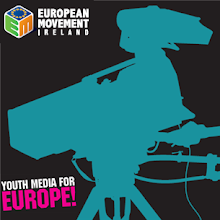By Gabrielle Campion
75% of candidates for the European Elections said that they would speak Irish in the Parliament in Brussels. They said this whilst answering a Survey lead by Conradh na Gaeilge which was published last week.
Many people have many different reasons for choosing a candidate to vote for – what they would do for the elderly, their policies for the environment etc., and for some the Irish language is the most important factor as they make their decision.
Peadar Mac Fhearghusa, President of Conradh na Gaeilge said that the current Members of the European Parliament are setting a good example with regards to speaking Irish, and that it gave reason for hope to the Conradh and to the Irish speaking community that most of the candidates in this current election are as willing to do this also if they are elected. “Tá dea-shampla ó thaobh labhairt na Gaeilge léirithe ag iar-fheisirí na hEorpa cheana, agus is ábhar dóchais don Chonradh agus do phobal na Gaeilge é go bhfuil tromlach na n-iarrthóirí sa toghchán seo chomh toilteanach, sásta céanna tabhairt faoin nGaeilge a labhairt i bParlaimint na hEorpa má thoghtar iad.”
In order to clarify each candidates stance on this issue, Conradh na Gaeilge made contact with the candidates of the major parties. This is as part of the Conradh’s campaign to encourage people to vote for candidates who are willing to support the Irish language in Europe.
Conradh na Gaeilge asked the candidates two separate questions:
1. (a) If you are elected as a Member of the European Parliament, are you willing to speak
Irish regularly and as common practice in Parliament?
nó
(b) If you are not comfortable with your own standard of Irish, will you improve upon your
level of Irish by taking classes or a self‐taught online course so as to ensure that you will have
sufficient Irish to represent Ireland in the EU using the country's first national language?
2. Will you campaign to end the derogation in
place with regard to the Irish language's status in
the EU, by putting pressure on the EU and the
Government of Ireland to achieve this?
Of the 75% of candidates who answered positively, 27% of them said that they were using Irish already in either the European Parliament, Dáil Éireann or the county council. 70% said that they would improve their Irish if elected. The final 3% said that they had fluent Irish and were looking forward to using it in the parliament.
55% of the candidates said that they would help campaign to put an end to the derogation with regard to the status of Irish in the EU. This derogation means that the European Union only has to translate laws passed by the Council of Ministers and the Parliament together into Irish.
Only one candidate who answered the survey said that he would not speak Irish in the Parliament and that he would not make any effort to improve his Irish in order to do so.
Candidates’ answers and more information is available on the Conradh na Gaeilge website, www.cnag.ie
Thursday, June 4
Subscribe to:
Post Comments (Atom)










No comments:
Post a Comment